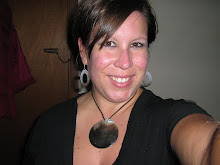However, it is generally agreed that Young Adult Literature is literature written for adolescent readers, and in some cases published by adolescent writers. The Young Adult Library Services (YALSA) of the American Library Association (ALA) defines a young adult as "someone between the ages of twelve and eighteen". Young adult novels have also been defined as texts written for the ages of twelve and up. Authors and readers of young adult (YA) novels often define the genre as "literature written for ages ranging from ten years up to the age of twenty" (Cole).
Kids are reading less and less. There are dozens and dozens of reasons why--I have many theories, beginning with the fact that adults, with every growing year, become less and less attuned to the needs of teens. In some ways, teen issues don't change--all teens struggle with identity, finding their place in the world, and determining what to do with their lives. But pressures placed on kids are greater than ever, and many parents and teachers are at a loss as to how to handle this. What can be done? One answer is simple: give them books.
Young adult literature has many fallacies surrounding it. People (especially adults) believe it is "dumbed down," lacking in literary value, or limited only to teens. This thinking is erroneous and uneducated, promoted by those who vaguely remember reading assigned texts from high school or are unfamiliar with contemporary YAL. Teachers, under pressure from administrators, prinicpals, and test scores, are, by and large, unaware of the wealth of literature available to them and their students, and feel compelled to teach the "classics." Furthermore, English departments require, at most, one YAL course, so teachers-to-be are ignorant of what's available.
So there's a disconnect between universities, teacher training programs, libraries, and YAL. Thinking needs to change. Solely teaching "the classics" and "adult" literature is ineffective for many reasons: struggling readers/learners have difficulty grasping the content. Often, even for proficient or excellent readers, classics fail to relate to the lives of teens. Handing a student a book that they relate to, can understand, and characters they empathize with, whether in a library, home, or classroom, is a guaranteed way to get students to ENJOY reading and not view it as a chore. How do I know this? Experience. Student teaching 8th graders was challenging, but I created literature circles using the books Walk Two Moons and Tangerine. The students couldn't wait for English class to share and discuss the books. After my 9 week placement was up, the unit was wrapped up as well. I later found out that the students switched books and continued reading, even though the unit was over. They liked the books that much. Teaching last year, the same thing happened: by choosing YA books that students liked and could relate to, students were receptive to reading and enjoyed the text.
An English teacher needs to be aware of contemporary literature. A book can be analyzed and discussed, and literary techniques studied using YA as well as adult literature. A rigorous discussion and critical analysis is possible using "non classics."
The publishing industry has reported that YA is the only area that is increasing its numbers. More and more "adult" writers are writing YA: Sherman Alexie, Louise Erdrich, James Patterson, and Joyce Carol Oates are only some who have achieved crossover success in both areas. Young adult literature isn't a "fad" or "trend" or something going away--it is a phenomenon that is growing and educators need to be on board with it.
There are 2 arguments I'm trying to make here: first is the value of YAL in the classroom. Secondly, teachers need to be aware of what's happening in the literary world and stay abreast of trends. Declining reading among teens is frightening, because of all the other areas that suffer as a result: writing skills, vocabulary, spelling/grammar/usage, the ability to think critically and discuss ideas, an understanding how other cultures, groups, etc. function and live.
Subscribe to:
Post Comments (Atom)

No comments:
Post a Comment